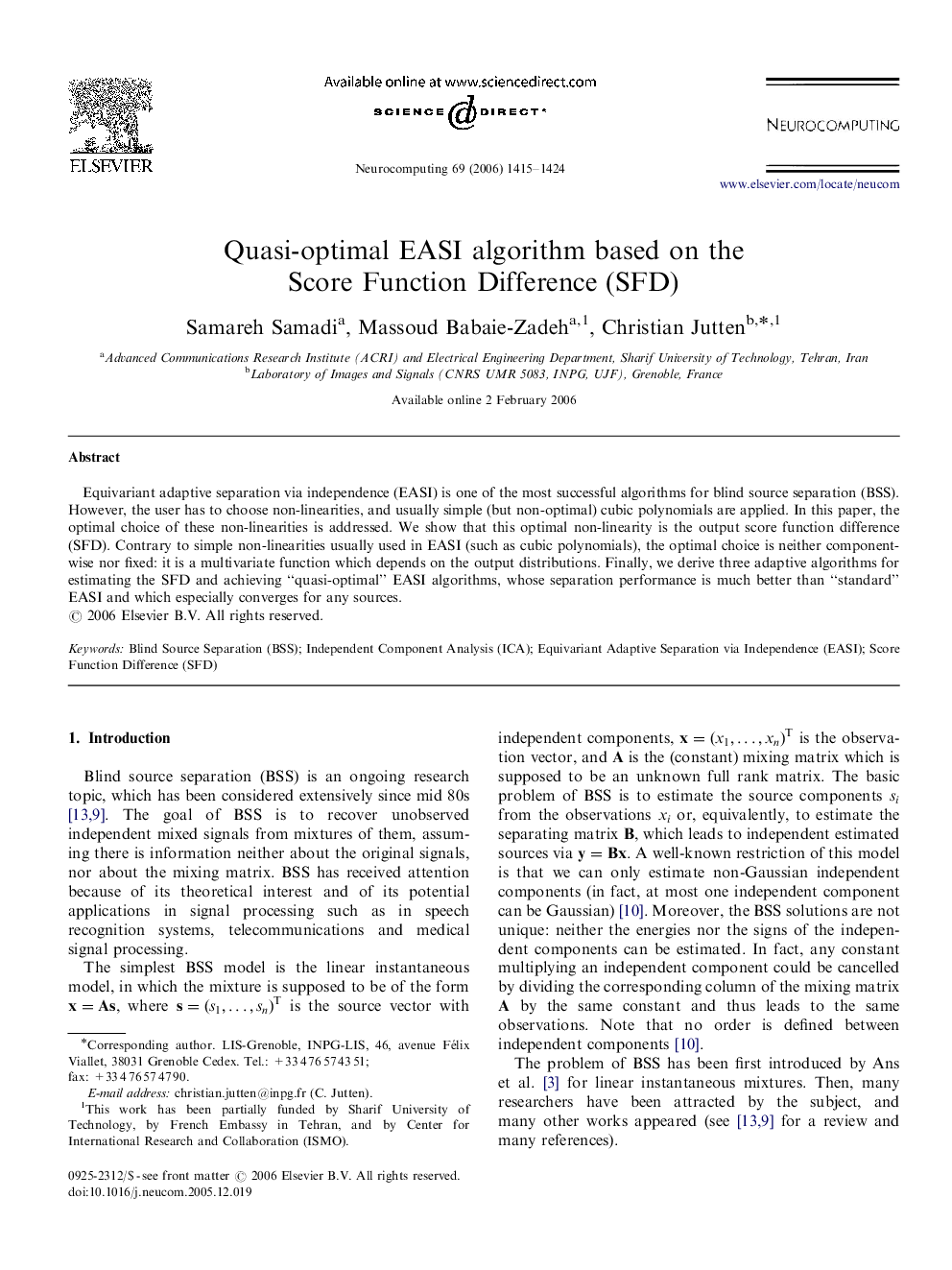| Article ID | Journal | Published Year | Pages | File Type |
|---|---|---|---|---|
| 409413 | Neurocomputing | 2006 | 10 Pages |
Abstract
Equivariant adaptive separation via independence (EASI) is one of the most successful algorithms for blind source separation (BSS). However, the user has to choose non-linearities, and usually simple (but non-optimal) cubic polynomials are applied. In this paper, the optimal choice of these non-linearities is addressed. We show that this optimal non-linearity is the output score function difference (SFD). Contrary to simple non-linearities usually used in EASI (such as cubic polynomials), the optimal choice is neither component-wise nor fixed: it is a multivariate function which depends on the output distributions. Finally, we derive three adaptive algorithms for estimating the SFD and achieving “quasi-optimal” EASI algorithms, whose separation performance is much better than “standard” EASI and which especially converges for any sources.
Related Topics
Physical Sciences and Engineering
Computer Science
Artificial Intelligence
Authors
Samareh Samadi, Massoud Babaie-Zadeh, Christian Jutten,
